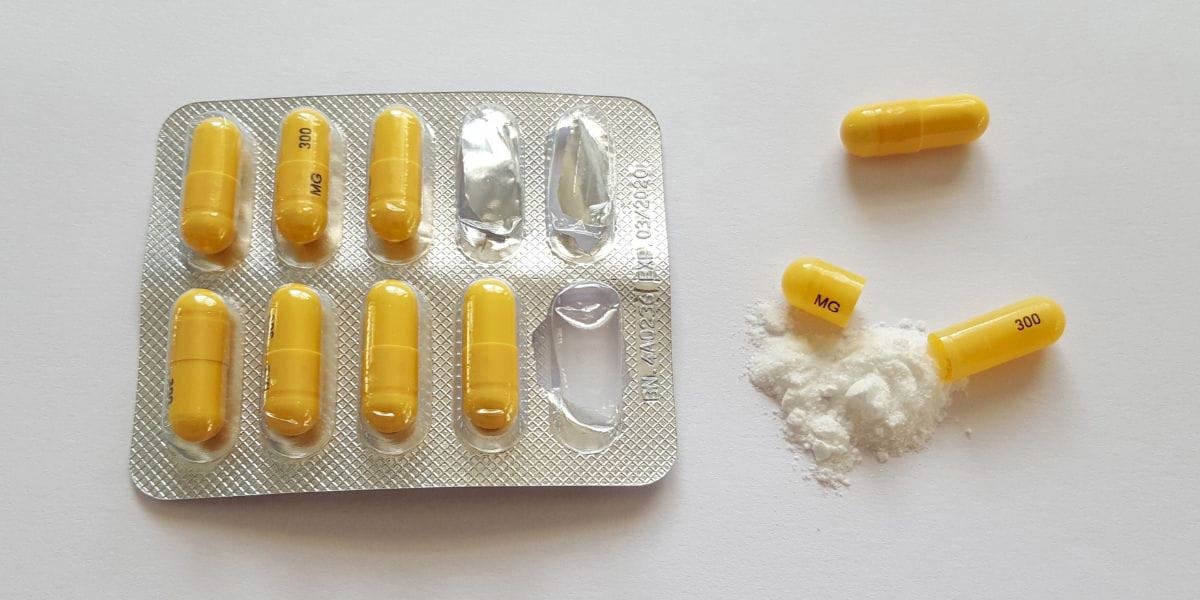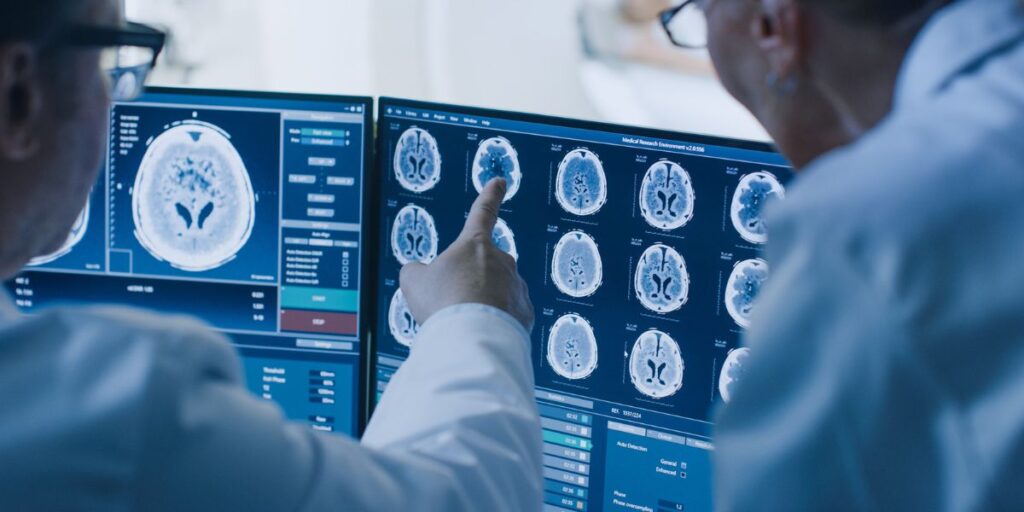Gabapentin: Uses, Side Effects, and Misuse


Medical Writer:
Reviewer:

Johnny Kim
Executive Psychotherapist
Medical Writer:
Reviewer:

Johnny Kim
Executive Psychotherapist
Gabapentin is a new prescription medication that can help prevent and treat partial seizures and nerve pain.
Due to its sedative properties, gabapentin is frequently prescribed to the general population for various off-label conditions.
Table of Contents
ToggleAt first, gabapentin was thought to be a safe medication that wasn’t addictive. However, new studies show that it can be addictive, especially when combined with alcohol or other drugs. Misusing gabapentin can cause side effects and withdrawal symptoms.
What Is Gabapentin?
Gabapentin is a prescribed drug initially utilized as an anticonvulsant, also recognized by brand names such as Neurontin, Horizant, or Gralise.
Now, it is commonly used for treating nerve pain, restless legs syndrome (RLS), and symptoms of alcohol and drug withdrawal.
The brain produces a chemical called GABA that helps nerve signals move around the brain. Gabapentin works with GABA transmitters in the body to help with nerve pain, seizures, and twitching.
Gabapentin works differently from other drugs that affect neurotransmitters. It doesn’t bind to GABA receptors or increase GABA production. Instead, it only changes how quickly signals are sent to the receptors.
This medication is a mild sedative that can make some people feel relaxed and euphoric, similar to the effects of marijuana.

Gabapentin Uses
Gabapentin is used to control seizures and as a muscle relaxant, primarily for treating epilepsy, restless legs syndrome (RLS), and nervous system conditions.
Physicians often prescribe medications for conditions beyond their approved uses, a practice known as off-label use.
In the United States, gabapentin ranks among the medications most frequently prescribed for off-label purposes, meaning it is used to treat conditions not explicitly approved by the FDA.
Several treatment facilities use it to alleviate withdrawal symptoms during medical detoxification from other illicit substances.
Most gabapentin prescriptions are used for reasons not listed on the label, says the National Institutes of Health (NIH).
Gabapentin helps treat several conditions, such as:
- Insomnia
- Fibromyalgia
- Alcohol withdrawal
- Bipolar disorder
- Pain from diabetes
- Irritable bowel syndrome (IBS)
- Migraines
- Hot flashes in people with cancer and women going through menopause
- Opioid withdrawal
- Post-traumatic stress disorder (PTSD)
- Chronic pain
Until recently, doctors believed this medication had a low risk of abuse. However, the American Journal of Psychiatry reported a rise in misuse in 2015. Many people reported using the drug to boost the effects of other illegal drugs.
People who abuse gabapentin have reported physical withdrawal symptoms, even though they do not feel psychologically addicted.
Dosage Forms of Gabapentin
Gabapentin comes in different forms, such as capsules, tablets, extended-release tablets, and liquid oral solutions. The dosages range from 100mg to 800mg.
Gabapentin enacarbil, marketed as Horizant, is distinct from other forms and must be administered only once daily with meals. Take your medication at the same time every day, and do not crush, cut, or snort the pills or capsules.
If you forget to take a dose and it’s almost time for it, take it right away. But if your next dose is soon, just skip the one you missed and keep going with your normal schedule. Don’t take two doses at once.
Gabapentin Side Effects
Gabapentin has side effects but can also exacerbate the side effects of other medications when taken concurrently.
Side effects can differ based on how much you take and who you are. Possible side effects of gabapentin include:
- Feeling dizzy
- Feeling sleepy
- Seeing double or blurry
- Eyes moving when they shouldn’t
- Shaking or tremors
- Headaches
- Weak muscles
- Dry mouth
- Feeling sick to your stomach
- Throwing up
- Hard to go to the bathroom
- Trouble remembering things
- Pain in your joints
- Pain in your ears
- Heartburn
- Fever
- Feeling different in your mood or actions
- Thoughts that bother you a lot
- Suicidal thoughts
Many of the side effects associated will go away once you stop taking the medication.
If you experience dizziness or drowsiness, find a place to sit down until these feelings subside, minimizing the risk of falls and potential injuries.
Always consult your doctor or pharmacist before taking any drugs, medications, vitamins, or supplements to prevent potentially life-threatening drug interactions.
Some side effects can be very serious. Stop taking it and get medical help if you have any of these problems:
- Hard time swallowing
- Swelling of the face, lips, throat, tongue, or eyes
- Voice sounds hoarse
- Breathing problems
- Feeling extremely sleepy
- Rash
- Itching
- Skin, lips, or fingernails look blue
- Seizures
- Confusion
In an emergency, always dial 911 and inform the first responders about any medications you or the person experiencing severe side effects have been taking.
Gabapentin Abuse
Gabapentin poses the greatest risk when combined with other sedative drugs or when individuals intentionally consume high doses to achieve euphoric and sedative effects.
Any medication, whether taken regularly, recreationally, or in combination with other drugs, carries risks, including the potential for addiction and withdrawal symptoms.
The National Institutes of Health (NIH) has recorded a notable simultaneous occurrence of gabapentin misuse and opioid addiction.
Furthermore, gabapentin is commonly used to adulterate heroin, meaning that increasing the amount in your system can heighten the risk of an overdose.
There is no antidote available to halt or decelerate a gabapentin overdose, unlike opioid overdoses.
Long-Term Use of Gabapentin
Long-term risks of using gabapentin include:
- Problems with vision
- Loss of sight
- Fetal defects
- Thoughts of suicide
- Behaviors of self-harm
- Muscle weakness
- Losing control of movement and coordination
- Miscarriage
Always talk to your doctor or pharmacist before you stop taking gabapentin suddenly. It’s important to get medical advice before you stop taking any prescribed medication.

Gabapentin Withdrawal
Taking gabapentin as prescribed for medical purposes can lead to physical and psychological dependence. It is possible to become dependent on gabapentin even when following the recommended dosage. This means your body might depend on the medication, and you could also feel like you need it mentally.
Gabapentin can affect your brain and body, so if you stop using it suddenly, you may experience withdrawal symptoms.
Should you be dependent on other substances while on this medication, you might encounter withdrawal symptoms that are alike.
Withdrawal symptoms from gabapentin include:
- Sweating
- Headache
- Mood changes
- Nerve pain
- Trouble sleeping
- Joint pain
- Feeling sick
- Feeling restless
- Worrying a lot
Gabapentin Addiction Treatment
If you or someone you know is struggling with drug or alcohol addiction, help is available.
We have a lot of experience helping people recover from substance abuse problems at White Oak Recovery Center. We can also help with past trauma and how it affects you.
Our cozy treatment center provides peace, support, and a customized plan to help you beat addiction and live a healthy life.
At WORC, we understand that many people struggling with substance abuse also have mental health problems that need help. Our programs, such as dual diagnosis and medication-assisted treatment (MAT), help with co-occurring disorders and medication-assisted treatment to address both conditions simultaneously.
Therapies like cognitive behavioral therapy and dialectical behavior therapy can help you learn healthy ways to avoid bad habits.
Begin your journey towards lasting recovery. Our empathetic treatment specialists are eager to help find the proper treatment for your needs. Contact us today.

Am I covered for addiction treatment?
Your insurance may cover treatment. Call now for an entirely free and confidential assessment. Recovery starts with a phone call.

- Quintero, Gabriel C., “Review About Gabapentin Misuse, Interactions, Contradictions, and Side Effects.” Journal of Experimental Pharmacology, Feb. 2017.
- “Gabapentin.” MedlinePlus: National Library of Medicine, May 2020.
- Smith, Rachel V, et al., “Abuse and Diversion of Gabapentin Among Nonmedical Prescription Opioid Users in Appalachian Kentucky.” The American Journal of Psychiatry, Apr. 2015.
- Peckham, Alyssa M, “Gabapentin for Off-Label Use: Evidence-Based or Cause for Concern?” Substance Abuse: Research and Treatment, Sep. 2018.
- Yassaei, Rama, “Gabapentin.” StatPearls: National Library of Medicine, Feb. 2024.
Medical Disclaimer:







